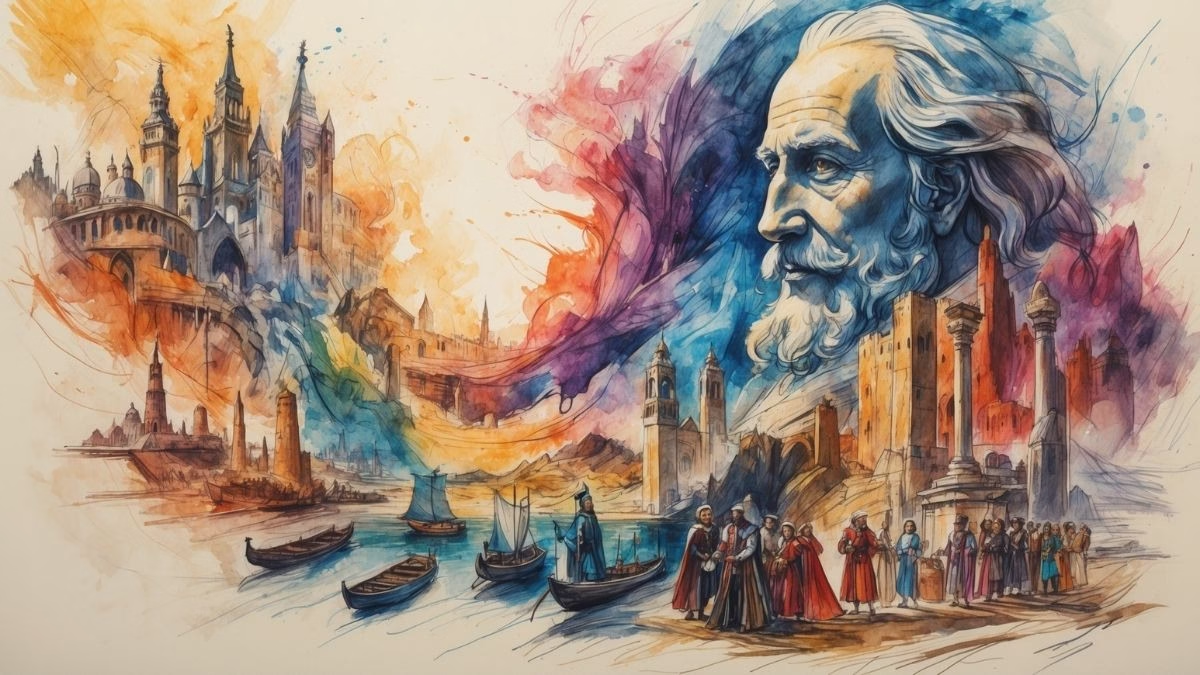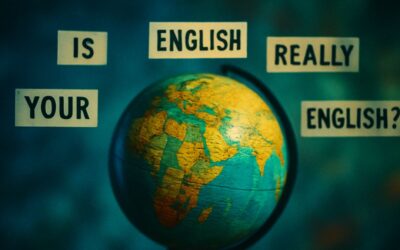Introduction
Have you ever stopped to think about the words you’re reading right now? Where did they come from? The English language feels so natural to us, yet it’s a living artifact, a patchwork quilt stitched together over 1,500 years of invasions, revolutions, and brilliant ideas. It’s a language that was born from German dialects, got a massive dose of French elegance, was shaped by Vikings, standardized by printers, and enriched by cultures from every corner of the globe.
This quiz is not a stuffy grammar test. It’s a time machine. I’ve designed it to take you on a journey to meet the people and witness the events that made English what it is today. Each question is a clue, and every answer, right or wrong, will reveal a fascinating twist in the story. You’ll discover why we have different words for the same thing (like pig and pork), how Shakespeare invented words you still use, and why a massive change in pronunciation happened that forever altered the sound of English. By the end, you won’t just know more about English; you’ll have a newfound appreciation for its messy, beautiful, and ever-changing history. Let’s begin the adventure!
Learning Quiz
The Epic Story of English
Hello again. We’ve just traveled through 1,500 years of history, and we did it by following the trail of the words we use every single day. The story of the English language is not some dry, academic subject; it’s a tale of survival, of conquest, of poetry, and of constant, messy, beautiful change. It’s the story of how a minor Germanic dialect became a global superpower.
Our story begins in the 5th century. The Roman Empire has crumbled, and its legions have abandoned Britain. Into this vacuum come new people in longships from what is now Germany and Denmark: the Angles, the Saxons, and the Jutes. They bring with them their Germanic dialects, which merge in this new land to become what we now call Old English. If you could hear it, you wouldn’t understand a word. It would sound guttural, and much more like German or Dutch. This is the language of the epic poem Beowulf, of warriors fighting monsters in mead-halls. The core of our language is here: simple, everyday words like water, earth, eat, sleep, and our most basic grammar.
But the story of English is a story of invasions. The next wave came from Scandinavia. Starting in the late 8th century, the Vikings arrived. They raided, they pillaged, and eventually, they settled down. They also spoke a Germanic language, Old Norse, which was surprisingly similar to Old English. The two groups began to mix and trade, and so did their languages. The Vikings gave English a dose of hardy, practical words. Words like sky, skin, leg, husband, and window. Even the essential pronoun they is a Viking import, which replaced a less clear Old English version. This was English 2.0: still Germanic, but now with a cool Viking upgrade.
Then came 1066. This is the date that changed everything. William the Conqueror, from Normandy in France, invaded and conquered England. This Norman army brought with them a new language: French. And for the next 300 years, England was a country with a linguistic split personality. The common people, the peasants, continued to speak English. But the new kings, the courts, the government, and the aristocracy all spoke French.
This is where English gets really interesting. Instead of English disappearing, it began to absorb French, and on a massive scale. Suddenly, English had two words for everything, one from the farm and one from the castle. The English-speaking farmer raised a pig, a cow, or a sheep. The French-speaking nobleman ate pork, beef, or mutton. English words were simple and direct; French words sounded more elegant and sophisticated. We got thousands of new words for law (justice, jury), government (parliament, sovereign), and art (music, colour, dance). This massive injection of French vocabulary, which itself came from Latin, is why English feels so rich and has so many synonyms. This new, hybrid language is what we call Middle English. And it found its champion in the poet Geoffrey Chaucer, who, in the late 1300s, made the bold choice to write his masterpiece, The Canterbury Tales, in English, proving it was a language worthy of great literature.
As we move toward the 1500s, two things happen that usher in Modern English. The first is a mysterious event called the Great Vowel Shift. For reasons we still don’t fully understand, people started changing how they pronounced their long vowels. The sound of “ee” became “ay,” the sound of “oo” became “ow.” A “hoos” became a “house.” The problem was, this happened just as the second big event was taking place: the invention of the printing press. Printers began to standardize spelling, freezing it in time. But pronunciation kept changing. This is the single biggest reason why English spelling is so notoriously tricky.
The Early Modern period is the age of Shakespeare. He wasn’t just a playwright; he was a linguistic innovator. He played with the language, turning nouns into verbs and inventing over 1,700 new words, like eyeball, bedroom, and swagger. At the same time, another monumental book, the King James Bible of 1611, was published. Its beautiful, resonant prose entered the consciousness of the English-speaking world, giving us enduring phrases like “the salt of the earth” and “a law unto themselves.”
From the 1700s onwards, the story of English becomes a story of standardization and globalization. Scholars like Samuel Johnson wrote massive dictionaries, pinning down meanings and spellings. And as the British Empire expanded, English traveled the world, picking up new words wherever it went. From India it took shampoo and pajamas; from Africa, zombie and voodoo; from Australia, kangaroo and boomerang. Then, American English came into its own, with its own spellings, pronunciations, and vocabulary, driven by a new nation forging its own identity.
Today, English is still changing. Technology has given us new words like blog, selfie, and emoji. It is a global language, the main language of science, business, and the internet. But it’s not the language of Beowulf, or Chaucer, or even Shakespeare. It’s a living, breathing hybrid. It has a Germanic heart, a French face, and a vocabulary stolen from over 350 other languages. It’s messy, illogical, and full of contradictions. And that is exactly what makes its story so epic, and so human.










0 Comments